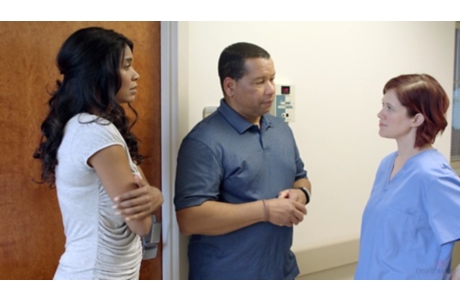Choosing a Nursing Home
Topic Overview
When considering moving into a nursing home, also called a resident care facility, you can take steps to make sure you select the place that best meets your needs.
- Visit several nursing homes with your family. Most nursing homes have an admissions coordinator who is able to answer your questions and show you the facility. Discuss what you like and dislike about each facility. It may be helpful to keep written notes about each facility. Don’t hesitate to ask for written material from each facility you visit. You may want to visit each facility more than once.
- Is the nursing home conveniently located to your family? You may want to choose a nursing home that your family members can visit frequently.
- Note the appearance of the nursing home. Is it clean and odor-free? Is the environment safe? The nursing home should have smoke detectors and sprinklers. Handrails should be present. Exits should be clearly marked and unobstructed. The halls and rooms should be clear from obstacles. Floors should be free from spills. The temperature in the facility should be comfortable.
- Your state government oversees the licensing of nursing homes. The most recent state inspection report should be posted for the public to read. If you do not see it posted, do not hesitate to ask to see a copy. The state inspection report will alert you to any violations the facility has received and the actions taken to correct these violations. In addition to your state’s regulation, the Health Care Financing Administration (HCFA) is the branch of the Health and Human Services department of the federal government that oversees Medicare and Medicaid programs. HCFA provides Medicare and Medicaid reimbursement to nursing homes to provide care for the elderly and disabled. HCFA regularly inspects nursing homes to ensure that Medicare and Medicaid guidelines are met. Do not hesitate to ask the facility about its most recent state and federal inspections.
- Ask about licensure. The nursing home and its administrator should be licensed to operate by the state in which you live.
- Talk to the admissions coordinator about the nursing home’s hiring practices. Does the nursing home screen potential employees for a history of abuse?
- What is the education level of the staff? Many nursing homes are staffed primarily with certified nursing assistants (CNAs), who provide the majority of care to residents. Training programs for CNAs vary from state to state. Most training programs are several weeks to months in length, and provide training to care for elderly, homebound, and ill people. A licensed practical nurse (LPN) or registered nurse (RN) should be available at all times to oversee the care given by the CNAs. What type of ongoing training does the staff receive?
- Is the nursing home able to retain qualified staff members, or is the turnover rate high? Visiting on more than one occasion will give you the opportunity to see if the same staff members are present consistently.
- Ask about the medical services at each facility. Will your doctor be able to direct your care, or does the nursing home have a medical director who will oversee your care? If a medical director will manage your care, how often does he or she make visits? Will you be able to talk to the medical director if you have questions or concerns? Will the medical director meet with you and your family if necessary?
- Visit the dietary department of each facility. Visit at mealtime. Are meals served on time? Are meals attractive? What steps will be taken to manage your specific dietary needs? If you are unable to feed yourself, staff should be readily available to assist you.
- Check the residents’ rooms. Are individual rooms available, or will you share with another resident? Are you able to bring in your own furnishings? Space should be ample, and the rooms should be free from clutter. Are televisions and telephones available in each room? Ask about bathroom facilities. Will you have you own bathroom, or are these shared?
- Is a pleasant area available outside, such as a yard or garden area?
- Is there an area for children to play?
- Are pets and plants allowed?
- Observe the residents. Do they appear clean and comfortable? Is the nursing home staff responsive and friendly? Notice how long it takes for call lights to be answered. Do you see staff members helping residents change their positions regularly (for example, turning in bed, or moving from the bed to a chair)? How does the staff handle confused or aggressive residents? What is the nursing home’s policy for restraining confused or aggressive residents?
- Ask about services available at the facility. Does the facility have a social director who oversees social events for the residents? There should be an assortment of activities available that appeal to a wide range of residents. Are religious services available? Does the facility offer the services of a hairdresser or barber? What laundry services are available? Are hospice or other specialized services (such as Alzheimer’s care) offered, and, if available, is there a waiting list for these services? Call or visit a local hospice program to ask about which nursing homes they most frequently work with.
- Ask about cost and payment options. Nursing home costs can vary greatly, depending on the facility and the type of care offered. Monthly costs can range from $2,500 to $3,000 or more. Many people pay for nursing home services out of their own personal resources. Some people have paid long-term care insurance that helps cover some nursing home expenses. Medicaid and Medicare offer limited resources for people who qualify. For more information on nursing home services and Medicare and Medicaid benefits, you can call toll-free (1-800-633-4227) or visit the Medicare Web site (www.cms.gov).
To learn more about how to choose a nursing home, see:
Health Tools
Health Tools help you make wise health decisions or take action to improve your health.
Current as of: April 1, 2019
Author: Healthwise Staff
Medical Review:Anne C. Poinier, MD – Internal Medicine & Adam Husney, MD – Family Medicine & Kathleen Romito, MD – Family Medicine & Shelly R. Garone, MD – Palliative Medicine
This information does not replace the advice of a doctor. Healthwise, Incorporated, disclaims any warranty or liability for your use of this information. Your use of this information means that you agree to the Terms of Use. Learn how we develop our content.



